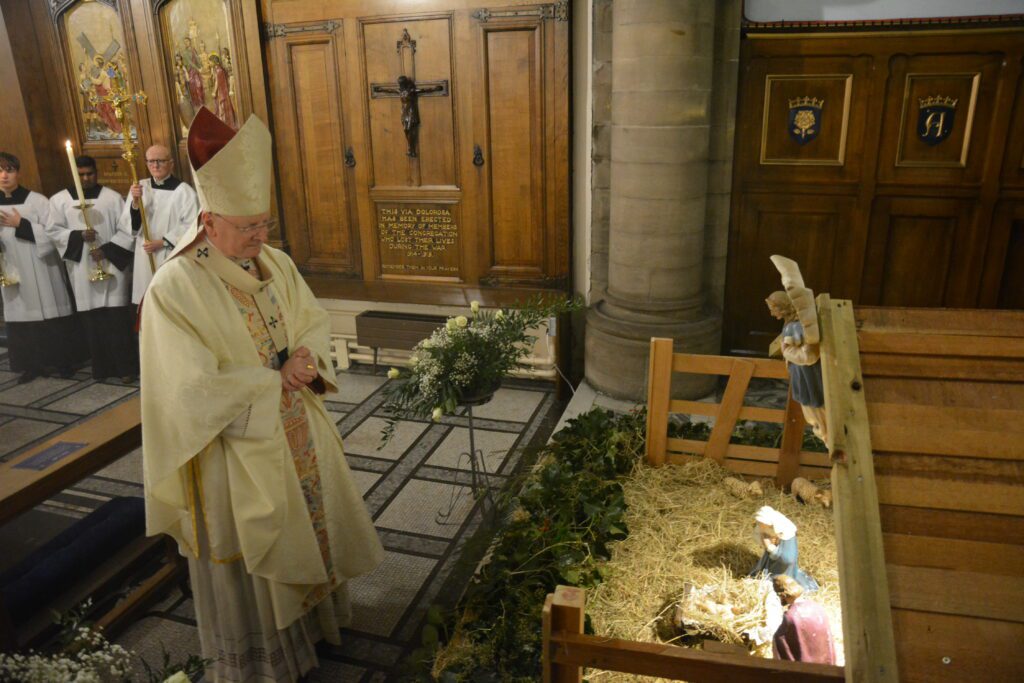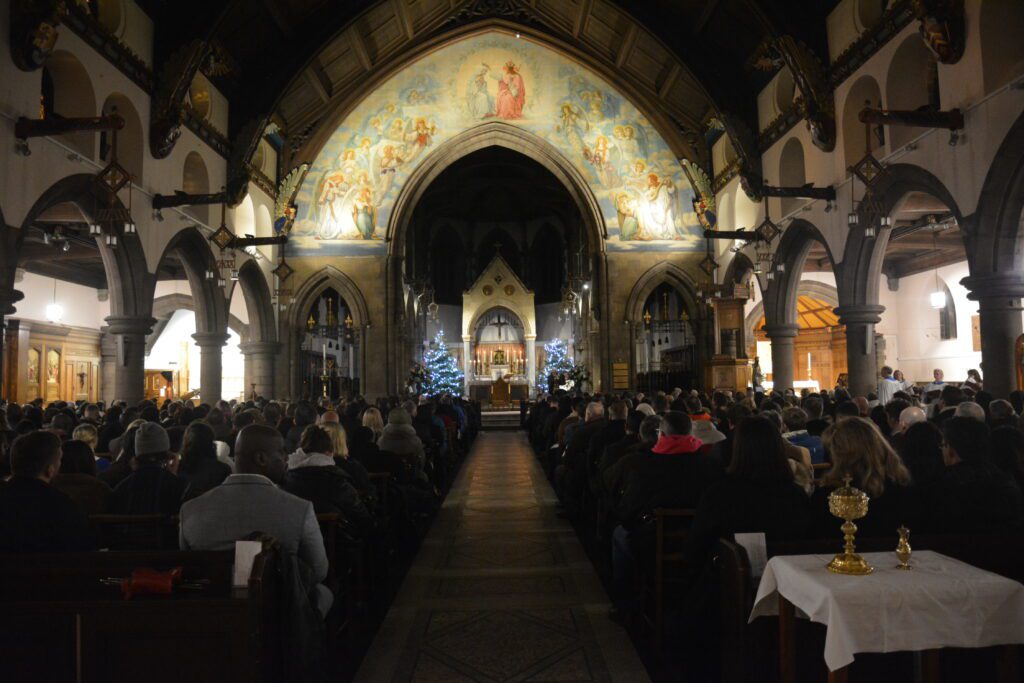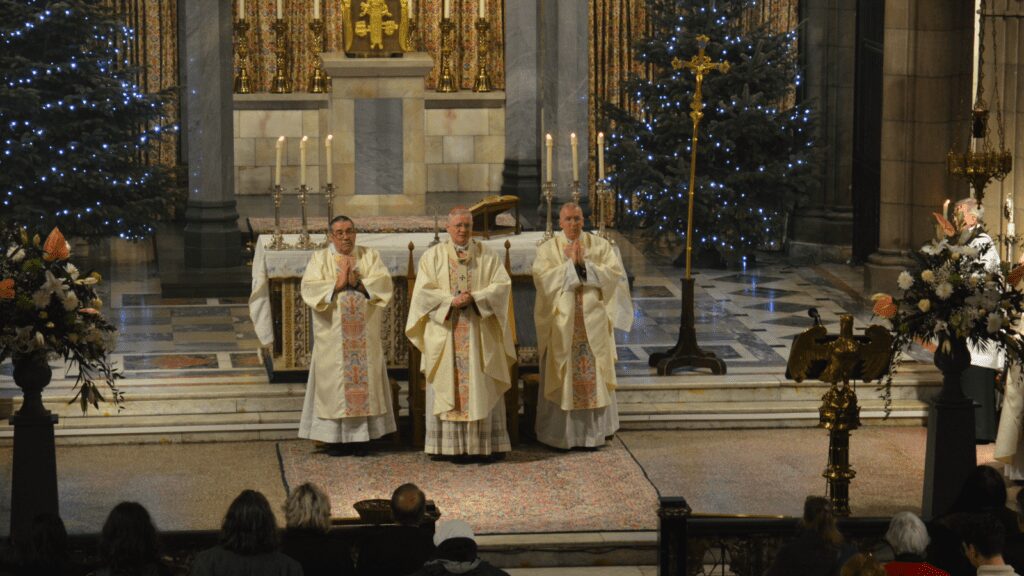Archbishop Cushley's Christmas Homily
Here is Archbishop Cushley's Homily from Midnight Mass at St Mary's Cathedral, Edinburgh,
A very Merry Christmas to you all, my dear brothers and sisters in Christ!
This year has truly been a difficult one for many, and an increasingly delicate and dangerous one for us all.
As we look from the Sudan to the Holy Land to Ukraine, as we look from farthest east to farthest west, we see war and injustice, upheaval and confusion.
This has surely been a year marked by turmoil, and one of the unhappiest times in nearly forty years.
As we look around us, it seems to me – if we ever needed reminded – that our peace-making is imperfect, our peace-keeping ineffective, our justice is flawed, our truth only half-truths, our promises worthless.
Too often, what we say is duplicitous, what we do is selfish, we what we promise is half-hearted. We never seem to get it right, and yet we long for things to be right, to be made right.
Meantime, here in this dark moment in dark times, we celebrate an event that seems so impossible, so far away, so detached from our present misery that it almost seems meaningless, pointless, vulgar.
We remember the birth of a poor child a long time ago.
Is Christmas really so empty of meaning that it just a cute festival for children, a time for eating and drinking and for exchanging presents that nobody really needs?
Not at all.
Christmas is actually about what is true, what is good, what is just.
Because what we celebrate at Christmas is something completely and utterly new, something we are unable to complete for ourselves, something that we long for with all our heart.
What we celebrate at Christmas is God becoming like us, God living among us, and the complete and utter change that is wrought in our human condition by the presence of God living among us.
This is what we celebrate when we look to Bethlehem.
And its beauty and simplicity naturally lend themselves to a story accessible to everyone, including families and children.
Its open heart is a part of its beauty for everyone, young and old, but we also have to recognise that the reality of what we’re celebrating is something new, something higher, something better than anything we could achieve on our own.
God has become a man among us in the person of Jesus Christ, so that, in turn, we can be filled with His divinity and join him in paradise and in happiness, forever.
The Word of God made flesh is God’s own Justice coming to live among us, God’s very Truth coming to live among us, God’s unbreakable peace coming to live among us.
That is why we celebrate Christmas with hearts full of joy and confidence. A glance at the news tells us that we cannot give ourselves peace, we are incapable of justice, we deny truth and undermine goodness.
But God, in Jesus Christ made man, gives us all goodness, all truth, all justice, all reality - and he gives them to us not only in abundance, but he does so freely and he does so generously.
One day we will see the fullest expression of this on the Cross. Jesus is not only the victim on the cross for you and me; he is also the perfectly innocent victim there.
We all know that Jesus was put to death for us, and yet we can overlook that he was also perfectly innocent.
He is not any victim, but a perfectly innocent victim.
He is put to death for us, for our sake.
This is something for us to notice again to notice afresh.
For us who call ourselves Christians, the only thing that really matters in this life is our fidelity to Jesus Christ.
As his disciples, we rejoice to remember once again how he became a man and lived among us, born humbly in Bethlehem, and living in our midst and dying innocently for us all.
Our hearts are full of joy as we thank God that he has sent us his Son today to live among us.
As his disciples, we pledge ourselves again to live lives that are more holy and just, and good and true.
We will remain imperfect; but by God’s grace, we and those whose lives we touch will be lifted up, purified and perfected by the Son of God, living among us.
A very happy and holy Christmas to you all!











